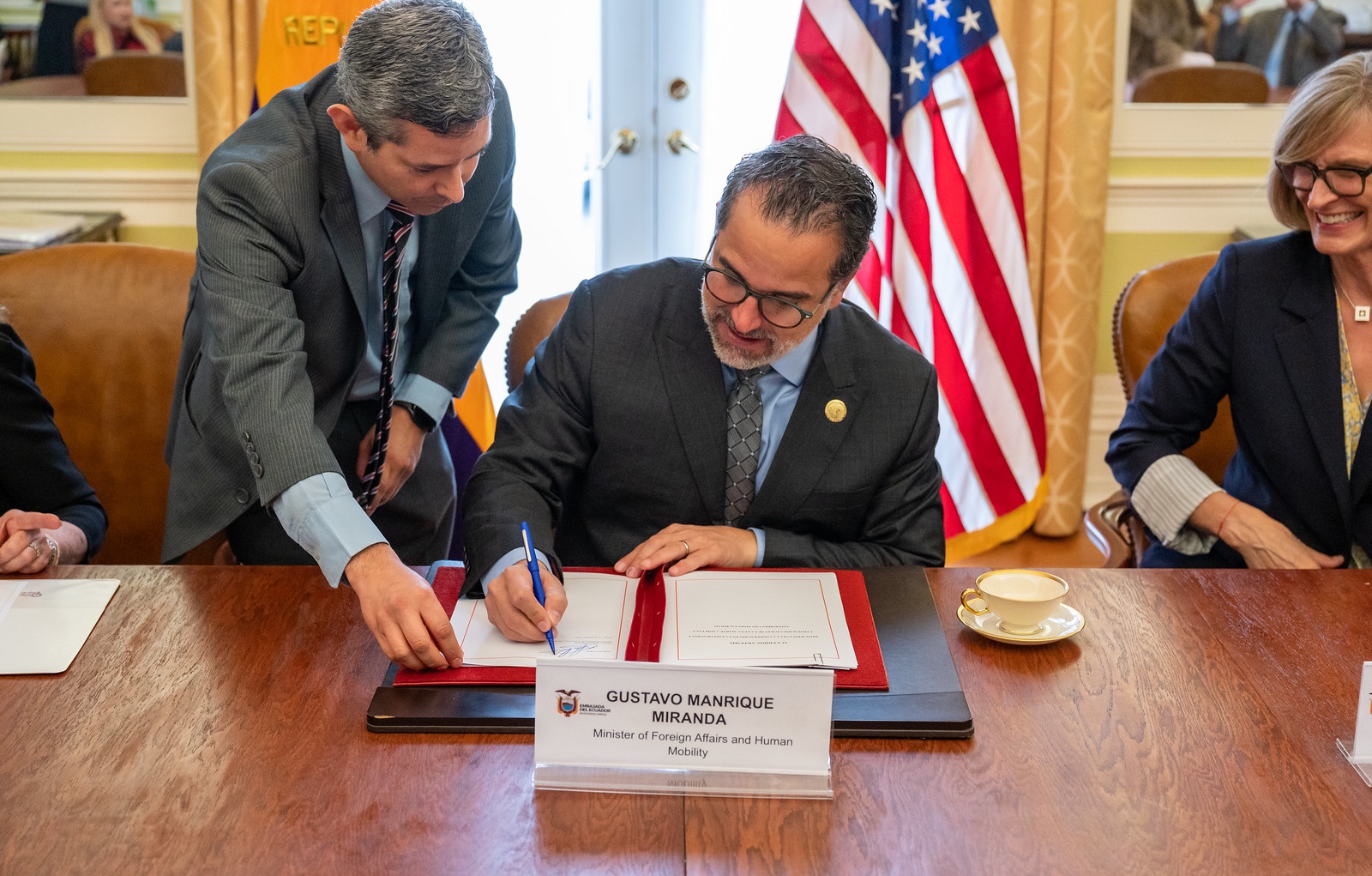WASHINGTON — Ecuador joined the growing roster of countries backing the Artemis Accords for safe and sustainable space exploration June 21.
In a ceremony at Ecuador’s embassy in Washington, Gustavo Manrique Miranda, Ecuador’s foreign affairs minister, sign the accords in the presence of officials with the U.S. State Department and NASA. Ecuador is the 26th country to sign the Accords and the fourth in Latin America, after Brazil, Colombia and Mexico.
“Signing the Artemis Accords sends a powerful message to the international community that the Ecuadorian government is committed to pursue cutting-edge efforts in technology and is open to innovation, investment, workforce development to promote sustainable growth, and international collaboration to help solve humanity’s greatest challenges,” said Ivonne Baki, Ecuador’s ambassador to the United States, in a statement.
Ecuador does not have a major presence in space, although it does have a space agency established in 2007. One Ecuadorian company, Leviathan Space Industries, has been working to establish a spaceport in the country.
The United States and others who have previously signed the Accords have made it a priority to attract more countries not traditionally seen as space players. In a recent interview, Jennifer Littlejohn, acting assistant secretary of state for oceans and international environmental and scientific affairs, said one working group of member countries, led by Brazil and Poland, was examining how to attract more emerging space nations and overcome any obstacles to them signing.
“The real strength of the Accords is the diversity of the signatory group,” she said. “Although not every country may have the same long-term exploration goals, I think we are working with all signatory countries to find ways to participate meaningfully in the Accords conversation.”
Karen Feldstein, the NASA associate administrator for international and interagency relations who represented the agency at the signing ceremony, offered a similar view. “Ecuador today adds its voice to a diverse and growing set of nations committed to the notion that humanity’s rapid expansion into space, toward the moon and destinations beyond, is peaceful, safe and in full accordance with international law,” she said.
While the Artemis Accords are closely tied to the NASA-led Artemis lunar exploration campaign, signing the accords does not necessarily commit a country to participating in the effort. Advocates of the accords argue that they outline principles and best practices based on the Outer Space Treaty, a cornerstone of international space law.
“The values that the United States wants to see develop on the moon and hopefully throughout all of outer space are the values that are reflected in the Artemis Accords,” said Emily Pierce, an attorney-adviser in the State Department, during a session of the Summit for Space Sustainability June 14 in New York.
With several countries planning lunar missions, she said, “there was an urgent practical need to start to get countries on the same page regarding operational implementation of several key obligations of the Outer Space Treaty.”
There are still issues that the Artemis Accords have not resolved, such as space resource utilization. That was deliberate, said Mike Gold, chief growth officer at Redwire and a former NASA official who spearheaded development of the Accords in 2020, in order to create a “big tent” of countries that can later resolve such sticking points. “The Accords are the beginning of a conversation,” he said on the conference panel, “not an ending.”
